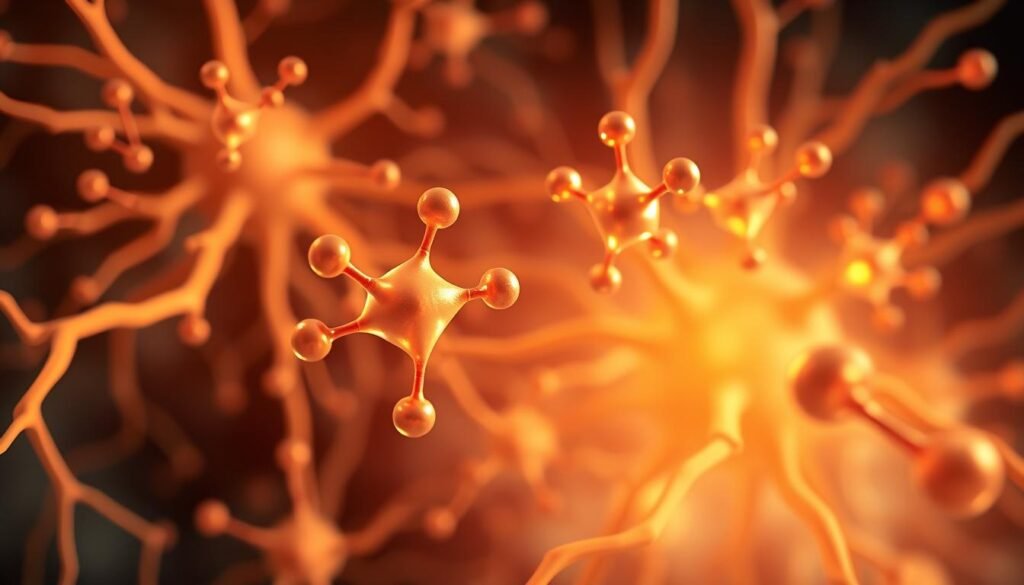The concept of NeuroWellness is gaining significant attention as people become more aware of the importance of maintaining optimal mental health. Recent advancements in neuroscience have shed new light on how our brains function and how we can improve our overall well-being.
As research in neuroscience continues to evolve, it provides valuable insights into the intricate workings of the human brain, paving the way for innovative approaches to achieving better mental health.
Key Takeaways
- NeuroWellness is becoming increasingly important for overall health.
- Recent advancements in neuroscience are providing new insights into brain function.
- Understanding neuroscience can lead to better mental health strategies.
Understanding NeuroWellness and Its Importance
NeuroWellness encompasses more than just the absence of neurological disorders; it’s about maintaining a healthy brain and optimizing its function. In today’s fast-paced world, understanding NeuroWellness is crucial for overall well-being.
What is NeuroWellness?
NeuroWellness refers to the state of being where an individual’s brain functions optimally, enabling them to lead a productive and fulfilling life. It involves neuroplasticity, the brain’s ability to adapt and change, and is influenced by various factors including lifestyle, environment, and genetics.
The concept of NeuroWellness is multifaceted, incorporating aspects such as:
- Cognitive function and performance
- Emotional regulation and resilience
- Neurological health and disease prevention
The Science Behind NeuroWellness
The science behind NeuroWellness is rooted in neuroscience, the study of the structure and function of the nervous system. Neuroscience research has made significant strides in understanding how the brain works, how it can be influenced, and how it can be protected.
Key areas of focus in the science behind NeuroWellness include:
- Understanding the role of neurotransmitters in mood regulation and cognitive function
- Exploring the impact of neuroplasticity on learning and recovery
- Investigating the effects of lifestyle factors such as diet, exercise, and sleep on brain health
By understanding these aspects, individuals can take proactive steps to enhance their NeuroWellness, leading to improved overall health and quality of life.
Exploring the Brain’s Plasticity
Understanding how our brains can rewire and adapt is essential for improving cognitive function. The brain’s plasticity, or neuroplasticity, refers to its ability to change and adapt throughout life.
What is Neuroplasticity?
Neuroplasticity is the brain’s ability to form new neural connections, allowing it to adapt and change. This concept challenges the long-held idea that the brain is a fixed, unchangeable entity that cannot be modified after a certain age.
Key aspects of neuroplasticity include:
- Synaptic plasticity: The strengthening or weakening of connections between neurons.
- Neuronal adaptation: The ability of neurons to change their function or structure in response to experience.
- Compensatory mechanisms: The brain’s ability to compensate for damaged areas by rerouting functions.
How Neuroplasticity Affects Learning
Neuroplasticity plays a crucial role in learning and memory. It allows the brain to reorganize and adapt in response to new experiences, environments, and learning.
Factors that influence neuroplasticity and, consequently, learning include:
- Age: While neuroplasticity is more pronounced in younger brains, it remains present throughout life.
- Exercise: Physical exercise has been shown to enhance neuroplasticity.
- Mental stimulation: Engaging in mentally stimulating activities can promote neuroplasticity.
By understanding and leveraging neuroplasticity, individuals can improve their learning capabilities and cognitive function. This knowledge opens up new avenues for personal development and cognitive enhancement.
The Role of Neurotransmitters in Mental Health
Neurotransmitters are chemical messengers that significantly impact our mental health by regulating various physiological and psychological processes. They facilitate communication between neurons in the brain, influencing a wide range of functions including mood, appetite, sleep, and cognitive processes.
Understanding the role of neurotransmitters is crucial for grasping how our brain influences our mental health and behavior. Imbalances or dysregulation of these chemical messengers can lead to various mental health issues, making their balance essential for overall well-being.
Key Neurotransmitters to Know
Several neurotransmitters play significant roles in mental health. Some of the most notable include:
- Serotonin: Regulates mood, appetite, and sleep. Low levels are associated with depression.
- Dopamine: Involved in reward, motivation, and pleasure. Imbalances can lead to disorders such as Parkinson’s disease and schizophrenia.
- Acetylcholine: Plays a key role in memory and learning. Dysregulation is linked to cognitive decline and Alzheimer’s disease.

Balancing Neurotransmitters for Well-Being
Maintaining a balance of neurotransmitters is vital for mental health. Lifestyle changes, dietary adjustments, and, when necessary, medical intervention can help achieve this balance.
| Neurotransmitter | Factors Influencing Balance | Methods for Balancing |
|---|---|---|
| Serotonin | Diet, Exercise, Sunlight Exposure | Increasing tryptophan intake, regular exercise, sunlight therapy |
| Dopamine | Reward Mechanisms, Stress Levels | Engaging in rewarding activities, stress management techniques |
| Acetylcholine | Diet, Cognitive Stimulation | Consuming choline-rich foods, engaging in mentally stimulating activities |
By understanding and addressing the factors that influence neurotransmitter balance, individuals can take proactive steps towards maintaining good mental health and overall well-being.
Benefits of Mindfulness and Meditation
The integration of mindfulness and meditation into daily life can have a profound impact on overall well-being. By cultivating these practices, individuals can experience significant improvements in both mental and physical health.
Neuroscience of Mindfulness
Mindfulness practices have been shown to positively affect the brain’s structure and function, particularly in areas related to attention, emotion regulation, and memory. Regular mindfulness practice can lead to increased grey matter in the brain, enhancing cognitive functions.
Reducing Stress: Mindfulness has been demonstrated to decrease the production of stress hormones like cortisol, leading to a decrease in anxiety and stress levels. This is achieved through the activation of the parasympathetic nervous system, which promotes relaxation.
Meditation Techniques for Daily Life
Incorporating meditation into daily life can be simple and rewarding. Techniques such as focused attention meditation, where the individual focuses on a single point like the breath, can improve concentration and reduce mind-wandering.
- Body Scan Meditation: This involves paying attention to different parts of the body, often to release physical tension.
- Loving-Kindness Meditation: Focuses on cultivating love, compassion, and kindness towards oneself and others.
- Guided Meditation: Uses visualization or guided imagery to lead the meditation practice.
By adopting these meditation techniques, individuals can experience a range of benefits, from reduced stress and anxiety to improved emotional well-being and cognitive function.
Impact of Sleep on Brain Function
Sleep is a fundamental aspect of human health, playing a crucial role in brain function. The quality of our sleep has a significant impact on our brain function.
During sleep, various processes occur that are essential for cognitive function, emotional well-being, and overall health. Understanding the different stages of sleep and their benefits can provide insights into how sleep affects brain health.
Sleep Cycle Benefits
The sleep cycle is divided into several stages, each with distinct benefits. Non-REM (NREM) sleep and REM sleep are the two main categories, with NREM further divided into three stages. Stage 1 NREM sleep is the transition from wakefulness to sleep, stage 2 involves a decrease in body temperature and heart rate, and stage 3 is the deep sleep stage crucial for physical recovery and memory consolidation.
REM sleep, characterized by rapid eye movements and vivid dreams, is vital for learning and memory. It is during REM sleep that the brain processes and consolidates information, enhancing problem-solving skills and memory.
Practices for Better Sleep
Improving sleep quality can be achieved through simple yet effective practices. Establishing a consistent sleep schedule is crucial, as it helps regulate the body’s internal clock.
Creating a bedtime routine can signal the body that it’s time to sleep. Avoiding caffeine and electronics before bedtime can also significantly improve sleep quality. Additionally, making the sleep environment comfortable by keeping the bedroom cool and dark, and avoiding heavy meals close to bedtime, can enhance sleep hygiene.
Nutrition’s Role in Brain Health
A well-balanced diet is crucial for maintaining optimal brain function. The connection between nutrition and brain health is undeniable, with certain foods having a significant impact on cognitive function.
Foods that Boost Cognitive Function
Certain foods have been shown to have a positive impact on brain health. These include fatty fish, nuts, and leafy greens. Fatty fish, such as salmon, are rich in omega-3 fatty acids, which are essential for brain function. Nuts, particularly walnuts, are rich in antioxidants and have been shown to improve cognitive function. Leafy greens, such as spinach and kale, are rich in folate, which has been linked to improved cognitive function and a lower risk of dementia.

The Importance of Omega-3 Fatty Acids
Omega-3 fatty acids are essential for brain health, playing a critical role in cognitive function and development. These fatty acids, particularly EPA and DHA, have been shown to support brain health by reducing inflammation and promoting the growth of new neurons. Foods rich in omega-3s, such as fatty fish, nuts, and seeds, are essential for maintaining optimal brain function.
Incorporating these foods into your diet can have a significant impact on your brain health. By making informed choices, you can take the first step towards supporting your cognitive well-being.
Current Research Trends in Neuroscience
Recent years have seen a surge in innovative approaches to neuroscience, transforming our knowledge of the brain. The field is rapidly evolving, with new discoveries and technologies continually expanding our understanding of the human brain and its functions.
Innovations in Brain Imaging
The development of new brain imaging technologies is revolutionizing the field of neuroscience. Techniques such as functional magnetic resonance imaging (fMRI) and diffusion tensor imaging (DTI) are providing unprecedented insights into brain structure and function. These advancements enable researchers to map brain activity with high precision, understand the neural basis of neurological disorders, and develop more effective treatments.
One of the significant breakthroughs in brain imaging is the ability to visualize the brain in real-time. This has opened up new avenues for understanding brain function and has implications for the diagnosis and treatment of neurological conditions. For instance, real-time fMRI can help patients control their brain activity, which is beneficial for conditions like chronic pain.
Advances in Neurotherapeutics
Alongside innovations in imaging, there have been significant advancements in neurotherapeutics. Researchers are developing new treatments for neurological disorders, including gene therapy, stem cell therapy, and novel pharmacological interventions. These treatments aim to address the root causes of neurological conditions, offering hope for more effective management and potential cures.
Gene therapy, for example, holds promise for treating genetic neurological disorders by correcting or mitigating the effects of the faulty gene. Meanwhile, stem cell therapy is being explored for its potential to repair or replace damaged neural tissue. These therapies are at various stages of development and testing, but they represent a significant step forward in the treatment of neurological diseases.
The future of neuroscience research looks promising, with ongoing innovations in both brain imaging and neurotherapeutics. As our understanding of the brain expands, so too will our ability to treat and manage neurological conditions, ultimately improving the quality of life for individuals affected by these disorders.
How Exercise Enhances Brain Function
The relationship between physical activity and brain health is complex, with exercise playing a crucial role in maintaining cognitive function. Research has shown that regular physical activity can improve brain function and reduce the risk of mental health disorders.
Physical Activity and Mental Health
Exercise has a profound impact on mental health by reducing stress and anxiety. Physical activity stimulates the production of neurotrophic factors, which are proteins that help to maintain and repair neurons. This process is crucial for maintaining healthy brain function and promoting neuroplasticity, the brain’s ability to adapt and change.
Moreover, regular exercise has been shown to improve mood and reduce symptoms of depression. The release of endorphins, often referred to as “feel-good” hormones, during physical activity contributes to improved mental well-being.
Recommended Exercises for Brain Wellness
Various forms of exercise can benefit brain health. Aerobic exercises, such as walking, running, and cycling, are particularly effective in enhancing cognitive function. These activities improve cardiovascular health, which is closely linked to brain health.
- Yoga: Combines physical movement with mindfulness techniques, reducing stress and improving flexibility and balance.
- Swimming: A low-impact exercise that is easy on the joints and can be very relaxing.
- Brisk Walking: An accessible form of exercise that can be done almost anywhere, promoting cardiovascular health.
Incorporating these exercises into your routine can have a significant positive impact on both physical and mental health. It’s recommended to aim for at least 150 minutes of moderate-intensity exercise or 75 minutes of vigorous-intensity exercise per week.
The Future of NeuroWellness Practices
As neuroscience continues to advance, the integration of its principles into daily life is becoming increasingly important for maintaining optimal brain health. By incorporating NeuroWellness practices into our routines, we can potentially enhance our cognitive function, improve mental health, and boost overall well-being.
Daily Applications of Neuroscience
Integrating neuroscience into everyday life involves adopting habits and practices that support brain health. This can include mindfulness, meditation, and a balanced diet rich in nutrients that support cognitive function. Emerging trends in NeuroWellness strategies are focusing on personalized approaches, utilizing technology and data to tailor interventions to individual needs.
New Frontiers in NeuroWellness
Emerging Trends in NeuroWellness are not only innovative but also accessible. Techniques such as neurofeedback, brain-computer interfaces, and AI-driven mental health tools are becoming more prevalent. These advancements are making it possible for individuals to take a more proactive role in their NeuroWellness, leveraging the latest research and technology to improve their brain health.
